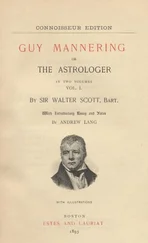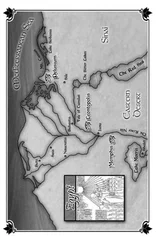“What’s Raven done this time?” Malemayn asked, and dropped the wallet that held the court disks on the nearest desk.
“Since when did you get into politics?” Haliday demanded, 3er eyes still fixed on Warreven.
“Æ?” Warreven said.
“Politics. You know what that is, though you always say you won’t play—except when Temelathe calls, of course.” Haliday touched the top of the display. “Why’d you wait to put your name on the list, Raven, were you afraid I’d talk you out of it? Or were you afraid I wouldn’t?”
“What are you talking about?” Warreven asked, and came around the cubicle wall to get a look at the screen.
Haliday stepped out of his way, pressing 3er hips against the edge of the desk platform. “I’m talking about the election lists, that’s what.”
Warreven scanned the screen without answering. It was less than a week to the two-day Midsummer holiday, and most mesnie s and clans and the five overarching Watches that governed them held their elections then, but what that had to do with him…?
And then, in the center of the screen, he saw his own name, set opposite the post of Stiller seraaliste. He stared at it for a moment, feeling remarkably stupid, and Malemayn said behind him, “I wonder who put your name in.”
“You’re telling me you didn’t,” Haliday said to Warreven, but 3er voice had lost some of its anger.
“Yes,” Warreven said, still staring at the screen. There was only one other candidate, the minimum required by clan law, and the name was all too familiar. Daithef Stiller was a perennial candidate, and more than a little mad; he had never yet been elected to anything. “I mean, yes, I didn’t do it,” he said, and wondered if he sounded as foolish as he felt.
“Who sponsored him?” Malemayn said.
“The nominating officer was Waterson, who’s speaker for the Haefeld mesnie .” Haliday made a face. “That’s over on the sunset coast. Seconding was someone called Tortisen, of Luccem. I don’t know either of them, and I can’t find a directory listing, electronic or paper, for either one.”
“Well, there’s a simple solution,” Warreven said, and reached for the ancient monophone that stood beside the computer. Parts of the system had come to Hara on the settlement ship five hundred years before—and it had been seventy years out of date on the day of landing—but it was still the only system that was certain to reach all the outlying mesnie s. Down in the Equatoriale and along the sunset coasts, there were still small mesnie s, mostly household size, that had evaded Temelathe’s order to accept a network terminal; a larger number of others had simply refused to assign anyone to answer the system’s mail. He punched code numbers from memory, lifted the headset, and waited until the tinkle of routing codes was finally replaced by a human voice.
“Black Watch House,” the voice—a man’s—said in franca , and then repeated the words in creole.
“Who’s the Stiller electing officer?” Warreven asked. “There seems to have been an error in the list.”
There was a little silence, and then the voice answered, “That’s Brunwyf, out of the Luccem mesnie —it’s a woman’s post this year. She’s away up north now, though. Can I take a message?”
“Is she on the system?” Warreven asked, without much hope. “Or the phone?”
“I’m sorry, mir. I don’t know if the line’s been patched yet. Can I take a message?”
And if Luccem is as traditional as I remember, Warreven thought, there’s no point in even trying the network. “Yes,” he said aloud. “You can tell her Warreven called, of the Ambreslight mesnie . Someone’s put my name on the list by mistake, and I’m not a candidate.”
“Warreven,” the voice repeated, and there was another little silence. “I’ll give her that message, mir.”
“Thank you,” Warreven said, but the connection was already broken. He set the headset back in its place, an unpleasant suspicion forming. Brunwyf was a nobody, just as Luccem was one of the minor mesnie s, but it was matrilineal, and her father and husband were both Maychilders, part of the string of Maychilder marriages that Temelathe had sponsored over the last thirty years. Which meant—or could well mean—that Brunwyf was part of the faction that was aligned with the Most Important Man. “What do you know about Brunwyf, of Luccem?”
Malemayn shook his head. “Absolutely nothing.”
“Isn’t she married to a Maychilder?” Haliday asked. “That’s one of the matri mesnie s, anyway, and they’re Traditionalists, that do know.”
“And Traditionalists in Haefeld,” Warreven agreed. “So why in all hells would they nominate me?”
“You’re hardly a Traditional candidate,” Malemayn said, with a grin.
“So they must’ve been doing someone a favor,” Haliday said. “Your would-be father-in-law, Raven?”
Warreven gave 3im a sour look. “It’s possible. In fact, I can’t think of anyone else who’d bother. But I can’t think why.”
“Nor can I,” Haliday said.
“Well, it’s hardly important,” Malemayn said. “They can’t make you run if you don’t want to, Raven—not even Temelathe can manage that without it looking really bad. So as soon as what’s-her-name gets back from Luccem, you can pull your name off the list.”
“Do you really want to bet against Temelathe?” Warreven asked, and Malemayn shook his head.
“Not iron, no. But this would be hard even for him.”
“I can think of three ways he could force it,” Haliday said, 3er voice gone suddenly cold. “But the simplest—well, look who the other candidate is. If Temelathe really wants you to be seraaliste, Raven, all he’d have to do is rule that we can’t add late candidates. He’s head of the Watch Council, he can do it. And then we get Daithef as our seraaliste .” Ȝe smiled, not pleasantly. “I think you’d run, Raven, don’t you?”
“I’m not going to run for anything,” Warreven said.
Malemayn said, “Still, the idea of Daithef as seraaliste is enough to give me chills. I hope they’re still able to nominate someone else.”
“They’d better,” Warreven said. “Besides, why would Temelathe want to see me Stiller’s seraaliste ? We’ve been butting heads with the White Stanes since we opened the office. He knows we don’t agree with his policies.”
“You’ve done him favors before,” Haliday said.
“Not like this,” Warreven answered.
“It doesn’t make a lot of sense,” Malemayn said.
Warreven shook his head. “It doesn’t make any sense at all.”
The monophone chimed twice, then twice again. Malemayn made a face and reached for it, flipping the switch to accept the connection. “Malemayn Stiller.” His eyebrows rose, and he touched the mute button at the base of the junction box. He held out the handset to Warreven. “It’s for you. The Most Important Man.”
Warreven reached for it automatically, then shook his head. “Patch it to my console, will you? I think I need to sit down for this one.”
Malemayn gave a snort of laughter, and Warreven slipped past him into the cramped cubicle that served him in lieu of a private office. The work surfaces were drifted with papers and the shell-disks that their ancient computers used; more disks had accumulated on top of the main drive box and on the primary display as well. He moved a pile away from the monophone and reached for the handset cautiously, as if it would bite. Malemayn was watching over the low wall, and Warreven nodded.
“Putting you through,” Malemayn said, and the next instant, Warreven heard the faint static of an open line.
Читать дальше












